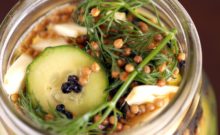Soil is part of a living ecosystem upon which plants derive much of their nutrients to grow and develop. For many gardeners, the process of feeding the soil is the primary way to ensure bountiful yields from year to year while minimizing diseases and pests.
In this week’s tip, we’ll cover some of the many additives you can add to your soil to feed the microorganisms, improve soil structure, and balance soil pH.
Lime
Lime is a calcium based substance that is high (basic) in pH that is used to raise the soil pH, improve soil structure. It should not be used in soils that are already alkaline in pH or only slightly acidic (6.0-7.0 on the pH scale). Lime is most often used in powder or pelleted form.
Animal Manures
Animal manure is almost always composted or well aged before being spread in the garden as there could be bacterial pathogens or parasites that can be harmful to human health. Manure from different animals have varying degrees of nitrogen content which can burn plants if too high in concentration or heat up too much during the decomposition process.
Animal manures are often readily available from local farms. Manures from different animals have varying amounts of weed seeds so use caution when applying.
Leaf Mold
When leaves are left to decompose, they break down into a substance called leaf mold. When mixed with other ingredients (ex. coffee grounds, animal manures), it is called leaf compost. Leaf mold is low in nutrients, but is great at improving soil structure, especially when it comes to moisture retention. Leaf mold is also a great medium for all the microorganisms in the soil.
Wood Ash
If you have a wood burning fireplace, stove, or outdoor fire pit, you can save the ashes and sprinkle them directly into your garden or outdoor composter. Wood ash contains potassium, which is one of the three main plant macronutrients (nitrogen and phosphorus being the other two). Wood ash has a alkalizing effect on soil pH, meaning it raises the pH. Gardeners with only slightly acidic or alkaline soil should use caution when using wood ash in the garden or composter.
Perlite and Vermiculite
Perlite and vermiculite are exploded rock and volcanic minerals that are lightweight, porous, and great for all gardens. Either can be used or interchanged, with perlite being the more common ingredient found in potting soil mixes. Perlite and vermiculite resist soil compaction, last for years in the garden (unless blown or washed away), and helps to stimulate root growth and development.
We strongly suggest adding either perlite or vermiculite to your garden as it has many excellent long term benefits.
Worm Castings
Worm castings are one of our favourite and primary additive to all our gardens. Not only does it work to improve soil structure, it improves moisture retention and adds in a wide variety of nutrients plants can use. Worm castings are like natural fertilizers, created by worms and their internal bacteria as they break down and digest organic materials.
Worm castings are very high in organic matter and can be created using a variety of worms and ingredients.
Seaweed Extract / Kelp
For centuries gardeners near coastal areas have used seaweed and kelp as soil conditioners and fertilizers. They are great for gardeners who do not want/like to use animal products in their garden, as well as for providing a wide range of micronutrients and trace elements. Seaweed extracts often come in liquid and granular form.
Coffee Grounds
Coffee grounds are another of our favourite additions to the garden, especially since they are so ubiquitous in our food culture. They can be added directly to the garden or composter and help to lower the pH of the soil while adding in nitrogen. Coffee grounds are quick to break down and can also serve as a slug deterrent.
Bone Meal / Blood Meal
Bone meal is generally used to add phosphorous to the garden and blood meal is generally used to add nitrogen to the garden. As their names imply, these products are made from dried and powdered animal bones and bloom.
Bone meal takes some time to break down and any dogs should be kept away from digging and consuming it.
[Got a Tip?] If you have a tip to share with your fellow urban farmers, let us know at tips@youngurbanfarmers.com. Want More Tips? Browse our Tips Archive for more.






